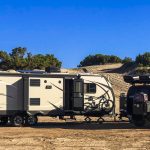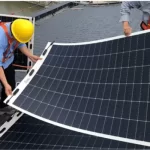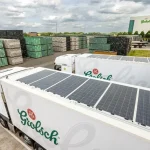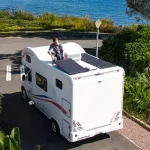In today’s fast-paced world, where we rely heavily on a constant and uninterrupted power supply to fuel our daily lives, the need for a home emergency power supply cannot be overstated. Unforeseen events such as natural disasters, grid failures, or blackouts can disrupt the power flow, leaving us in the dark and vulnerable.
What is an Emergency Power Supply?
An emergency power supply, also known as a backup power system or a home generator, is a device or system designed to provide electricity during times when the main power source is unavailable or unreliable. It acts as a backup power source, ensuring that essential appliances and devices in your home continue to function even during power outages or emergencies. These power supplies can range from portable generators to more sophisticated systems that automatically switch on when the main power supply fails.
Why Do You Need Emergency Power?
Security and Safety:
Having an emergency power supply in place ensures that your home remains secure and safe during power outages. It allows you to keep your security systems, such as alarm systems, cameras, and motion sensors, operational, providing you with peace of mind and protection.
Comfort and Convenience:
Power outages can be incredibly inconvenient, especially during extreme weather conditions. With an emergency power supply, you can continue to operate essential appliances like refrigerators, air conditioners, heating systems, and lighting, ensuring your comfort and convenience even during prolonged outages.
Medical and Health Needs:
For individuals with medical conditions that require powered medical equipment or medications that need refrigeration, a reliable power supply is vital. An emergency power source can be a lifeline during critical situations, ensuring the uninterrupted operation of medical devices and preserving medications.
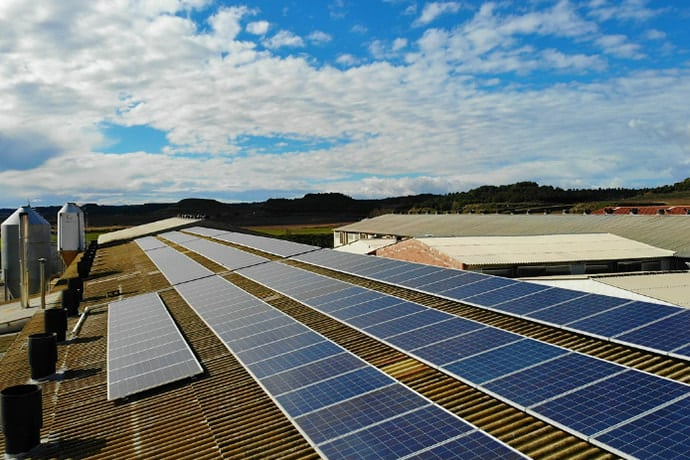
Three Situations Where Emergency Power Supply Is Essential
Natural Disasters:
Natural disasters such as hurricanes, earthquakes, or severe storms often result in power grid failures, leading to widespread power outages. In such situations, having an emergency power supply becomes essential for lighting, communication, and ensuring basic needs are met.
Grid Failures:
Power grid failures can occur due to various reasons, including equipment failures, maintenance issues, or overloading. These failures can result in prolonged blackouts, leaving homes and communities without electricity. An emergency power supply allows you to maintain essential services and carry on with your daily activities until power is restored.
Remote or Off-Grid Living:
If you live in a remote area or rely on alternative energy sources, having an emergency power supply is crucial. It provides a backup solution when your primary power sources, such as solar panels or wind turbines, are unable to generate sufficient electricity.
Emergency Power Prices
The cost of an emergency power supply can vary depending on factors such as the capacity, type, and features of the system. Portable generators, for instance, are more affordable compared to whole-house backup systems. However, it’s important to consider the long-term benefits and the value it adds to your home and peace of mind. Investing in a reliable and high-quality emergency power supply is an investment in the safety, security, and convenience of your household.
How to Choose an Emergency Power Supply?
When selecting an emergency power supply for your home, consider the following factors:
Power Capacity:
Assess your power needs and determine the capacity required to run essential appliances and devices during an outage. This will help you choose a power supply that can handle the load without overloading and provide enough energy for your specific needs.
Fuel Type:
Emergency power supplies can run on various fuel types, including gasoline, diesel, natural gas, or propane. Consider the availability and accessibility of the fuel in your area, as well as the cost and convenience of refueling. Additionally, evaluate the environmental impact of different fuel options and choose one that aligns with your values.
Run Time and Fuel Efficiency:
Look for information on the run time of the emergency power supply on a full tank of fuel. This will give you an idea of how long the power supply can sustain your essential devices during an outage. Additionally, consider the fuel efficiency of the system, as it will affect the overall operating costs and the frequency of refueling.
Ease of Use and Maintenance:
Opt for an emergency power supply that is easy to operate and maintain. Look for features such as electric start options, clear instructions, and user-friendly controls. Additionally, consider the maintenance requirements of the system, including regular servicing and fuel storage considerations.
Noise Levels:
Emergency power supplies can generate noise during operation, which can be a concern, especially if you live near neighbors or have noise-sensitive individuals in your household. Look for power supplies that have noise reduction features or are specifically designed to operate quietly.
The Best Emergency Power Supply Options
While the best emergency power supply for you depends on your specific needs and circumstances, here are a few popular options to consider:
Portable Generators:
Portable generators are versatile and can be easily moved around. They are suitable for powering essential appliances and devices during short outages. However, they usually have limited run times and may require manual refueling.
Standby Generators:
Standby generators are permanently installed and connected to your home’s electrical system. They automatically turn on when the main power supply fails and can provide power for extended periods. They are typically fueled by propane or natural gas and offer higher power capacities.
Solar Power Systems:
Solar power systems, such as solar panels paired with battery storage, provide a renewable and sustainable option for emergency power. They harness energy from the sun, store it in batteries, and can power your home even during extended outages. Solar power systems require an upfront investment but offer long-term cost savings and environmental benefits. Sungold has 15 years of solar panel manufacturing experience and is your ideal choice.
In conclusion, having a home emergency power supply is essential for maintaining security, safety, and comfort during power outages or emergencies.
The article comes from: https://www.sungoldsolar.com/
Your most sincere solar partner – Sungold




